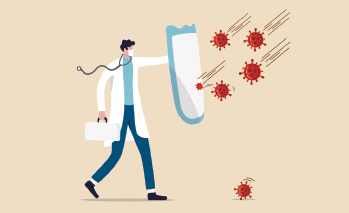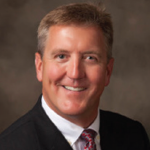
© eamesBot / shutterstock.com
ENTtoday physician editor Alexander Chiu, MD, wrote last issue’s “From the Editor” column on “The New Normal.” Afterward, he asked me to pen a manuscript to address what I thought the future of otolaryngology would be, what our “new normal” would likely be. I thought about this topic for days, and my only epiphany was that I had more questions than answers. If I were pressed for an honest answer about the hundreds of aspects of this simple question, I would have to default to “I honestly don’t know” for most of them.
Explore This Issue
June 2020I’m a general otolaryngologist in a small group practice (three physicians, three advance practice providers) in Auburn, Ala. This is my home, and these are the people I have dedicated my life to serving. The pandemic hit our community hard, very early, and at the time of this writing (late April), we have been shut down for all but essential/urgent surgeries and office visits for six weeks. We furloughed most of our staff immediately, have seen less than a quarter of our normal volume of patients, and have performed no surgeries. The financial impact of such a shutdown is just short of devastating for a private practice like ours. Fortunately, the Paycheck Protection Program and Centers for Medicare & Medicaid Services advance payments and grants have allowed us to bring our staff back and limp by, although we’re still at minimum patient and surgical volumes.
None of us really know what the practice of otolaryngology, or any field of medicine, will look like two weeks from now, much less two months or two years. We are still in the midst of the storm, and we don’t know if the next fair weather is the end of the downpour, a break in the clouds, or the eye of the hurricane. Only time will truly tell.
We are still in the midst of the storm, and we don’t know if the next fair weather is the end of the downpour, a break in the clouds, or the eye of the hurricane. Only time will truly tell.
So, unfortunately, I don’t think that I’m clairvoyant enough to reasonably predict our new normal. But even though I am unable to describe the new normal, I would like to offer a suggestion on how we get there, and what it will be like when we arrive.
Our future—our new normal—is going to be whatever we make of it. We have a choice today: We can either stand idly by and let external forces shape the future of our specialty, or we can take the responsibility to create it for ourselves and our patients. We can look at the future with fear and anxiety, or we can look at this as an opportunity to build a system that’s safer for everyone while preserving the joy of practicing otolaryngology. I vote for the latter.
To my knowledge at the time of this writing, there are no data, evidence, or reports of any patient contracting COVID-19 from a routine otolaryngologic exam or procedure. I am also unaware of any objective data demonstrating that otolaryngologists have contracted the virus from routine office endoscopy or minor nasal and pharyngeal procedures. I’m not saying that neither can happen—obviously, they can. We must therefore take a pragmatic, measured approach to setting guidelines for the future of our specialty that protect everyone, but that aren’t draconian or unnecessarily cumbersome and expensive.
I have a strong sense that most of what we need to do are the foundational things that we learned the first year of medical school, or even in kindergarten:
- Protect ourselves: Wash hands with soap and water for an adequate amount of time before and after any patient encounter. Be cognizant when our face is in close proximity to the patient’s. Wear a properly fitted face mask to prevent infection of yourself and the patient. Protect your eyes and all mucous membranes from cough and aerosols. Wear gloves. Wipe down everything you touch, including your phone and computer.
- Protect our patients: Allow for appropriate spacing in the waiting room. Limit visitors to those absolutely necessary. Avoid unnecessary appointments, tests, and diagnostic and therapeutic procedures. Inform patients of the theoretical risk of any procedure. Test them for COVID-19 when testing is available. Educate them on measures to take to mitigate their risk of getting the virus.
- Protect the specialty: We are the experts in examination of the head, neck, and upper aerodigestive tract, so let’s do our jobs, and do them well. Examine thoroughly. Feel the neck. Perform bimanual palpation. Scope patients when indicated. Perform the diagnostic and therapeutic procedures that only otolaryngologists perform. Take extraordinary care of your patients.
We must allow the scientific evidence to dictate our actions, and not make recommendations that are cost and process prohibitive without clear indication. We do not need conjecture and opinion; we need data and thoughtful consideration.
As for private practices like ours, we’ll be fine. The disruptions of our workflow and revenue cycle are only transient inconveniences. If we dedicate ourselves to taking excellent care of our patients, they’ll be waiting for us when this is over, and we’ll be just as busy as ever. If I am certain of anything, I’m certain of this.
The best thing about our “new normal” is that we will still be able to take amazing, safe care of our patients, and we’ll be able to practice this most fulfilling and rewarding specialty of otolaryngology.
 Dr. William R. Blythe has been in practice at East Alabama Ear, Nose and Throat, P.C., since 1997. He is also on the active medical staff at East Alabama Medical Center.
Dr. William R. Blythe has been in practice at East Alabama Ear, Nose and Throat, P.C., since 1997. He is also on the active medical staff at East Alabama Medical Center.